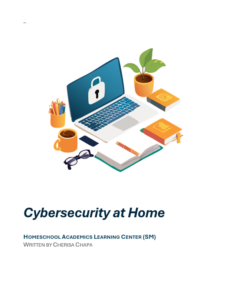Methods, Curriculum Types, and State Requirements
Homeschooling Your Children
Homeschooling is an educational approach where parents or guardians take responsibility for educating their children at home instead of sending them to a traditional public or private school. In homeschooling, the parent acts as the primary teacher or may coordinate learning with tutors or online programs. This method provides a customized education plan catering to a child’s learning style, pace, and interests.

Homeschooling: Getting Started
Homeschooling is an educational approach where parents or guardians take responsibility for educating their children at home instead of sending them to a traditional public or private school. In homeschooling, the parent acts as the primary teacher or may coordinate learning with tutors or online programs. This method provides a customized education plan catering to a child’s learning style, pace, and interests.
It can be an advantageous and effective way to educate your child. However, it requires careful planning and commitment.
Educational Styles
The choice of homeschooling method often depends on the child’s learning style, the family’s values and lifestyle, and the resources available. Many homeschooling families adapt and evolve methods to meet their changing needs and goals.
Charlotte Mason Method
Classical Education
Classical Trivium
Cooperative or Group Homeschooling (Co-Ops)
Eclectic Homeschooling
Hybrid Homeschooling
Interest-Led Homeschooling
Montessori Method
Online or Virtual Homeschooling
Reggio Emilia Homeschooling
Relaxed Homeschooling
Religious Homeschooling
Thomas Jefferson Homeschooling
Traditional Homeschooling
Unit Studies
Unschooling
Waldorf Method
Worldschooling
Smart Parents Cyber Securely
You may be concerned about cybersecurity protections due to increased online activity from remote work or schooling or simply wanting to protect personal information and devices from potential online threats. Your concerns could also stem from a recent data breach, a phishing scam, cyberbullying targeting a child, or identity theft.
This 25-page overview covers the cybersecurity threat landscape, recognizing threat actors, and identifying common vulnerabilities and exploits.
Texas Letter of Assurance
There is no formal requirement for a "Homeschool Letter of Assurance" in Texas since homeschooling is legally...
Create Your Homeschooling Academic Calendar
Creating an academic homeschool calendar can help you organize lessons, track progress, and maintain a balanced...
Summative Assessments
Summative assessments are evaluations conducted at the end of an instructional period to measure student learning,...
Formative Instructional Tools
Formative instructional tools are resources and strategies that help teachers assess students' understanding and...
Instructional Methods
Instructional methods refer to educators' diverse techniques, strategies, and approaches to delivering lessons,...
Using Project-Based Learning in Your Homeschool
Project-based learning (PBL) can be an incredibly engaging and practical approach to homeschooling. It allows for deep...
Tips for Homeschooling your ADHD and ODD child
Homeschooling a child with both ADHD and Oppositional Defiant Disorder (ODD) can be challenging but also rewarding...
Creative Time in Homeschooling
Incorporating creative time into homeschooling can be an excellent way to foster imagination, self-expression, and...
Lesson Planning in Homeschool
Lesson planning in a homeschool environment can be highly personalized to the student's needs, interests, and pace of...
What is Core Curriculum?
Core Curriculum refers to essential subjects and standards all students must study and master. It is usually...
Develop Critical Thinking in Children
Developing critical thinking in children is essential to their problem-solving abilities and decision-making skills....
Regular Meetings with Students and Parents
Hold regular meetings to discuss progress, challenges, and necessary adjustments to educational strategies. Tools and...
Personalized Feedback
Provide regular and personalized feedback on students' work to guide their learning and motivate them. Tools and...
Peer Assessment
Encourage students to evaluate their peers’ work to foster collaborative learning and self-reflection. Tools and...
Self Assessment
Encourage students to self assess to develop autonomy and awareness of their own learning process. Tools and Methods...
Educational Software Integration
Incorporate specific software to track students' academic progress in real-time. Tools and Methods Online learning...
Behavior Tracking Sheets
Use grids or sheets to monitor specific student behaviors over time. Tools and Methods Behavior charts, behavior...
Progress Charts
Visualize academic and behavioral progress through charts to identify trends and intervention needs. Tools and Methods...
Student Portfolios
Collect student work over a period to assess their progress and development. Tools and Materials Work folders, work...
Continuous Formative Assessment
Evaluate students continuously throughout the year to adjust instruction according to their needs. Tools and Methods...
Questions, Concerns, or Comments
We welcome all those considering homeschooling, whether new to the journey or seasoned professionals, to our Facebook Group. This group supports families with diverse learning needs, providing curriculum, adaptive technology, strategies, and methods to help their children learn, explore, and thrive.
We encourage engaging posts with limited links and promotions. We understand many families are looking for free or affordable curriculum ideas and resources, and we're committed to helping you find them. Whether you need answers to learning changes due to autism, ADHD, dysgraphia, dyscalculia, dyslexia, anxiety, sensory processing disorders, or if your child is neurodivergent, we're here to support you.






